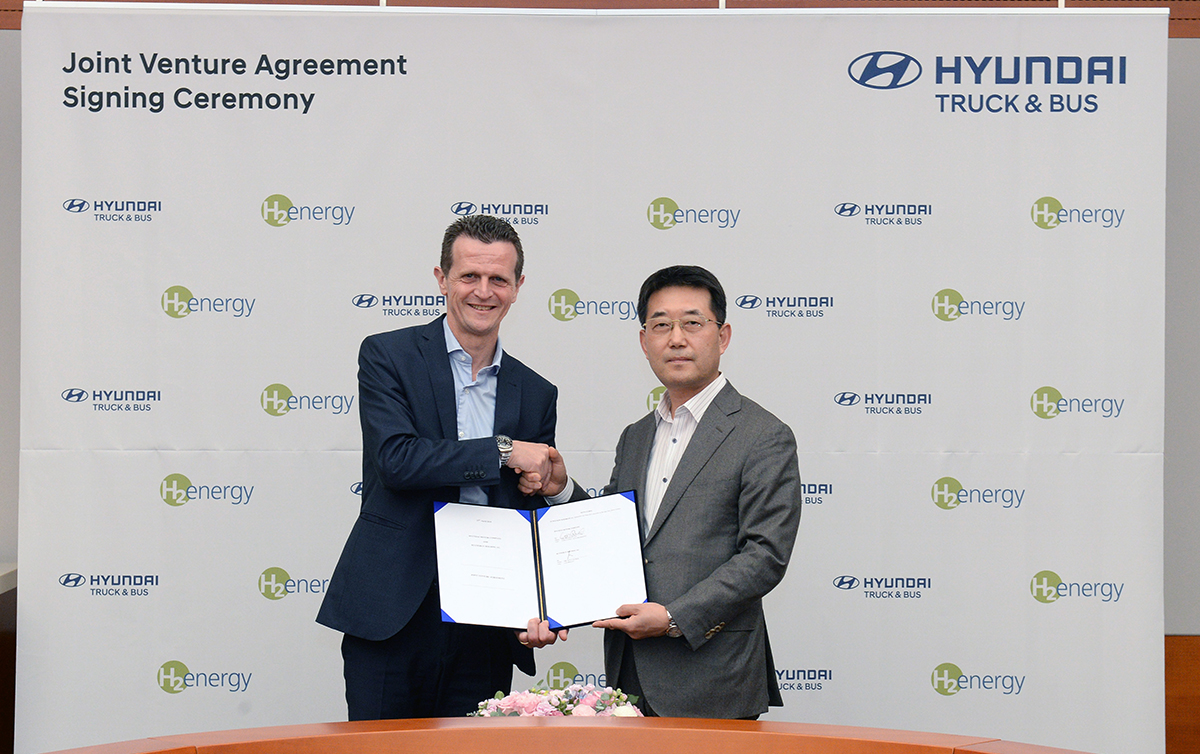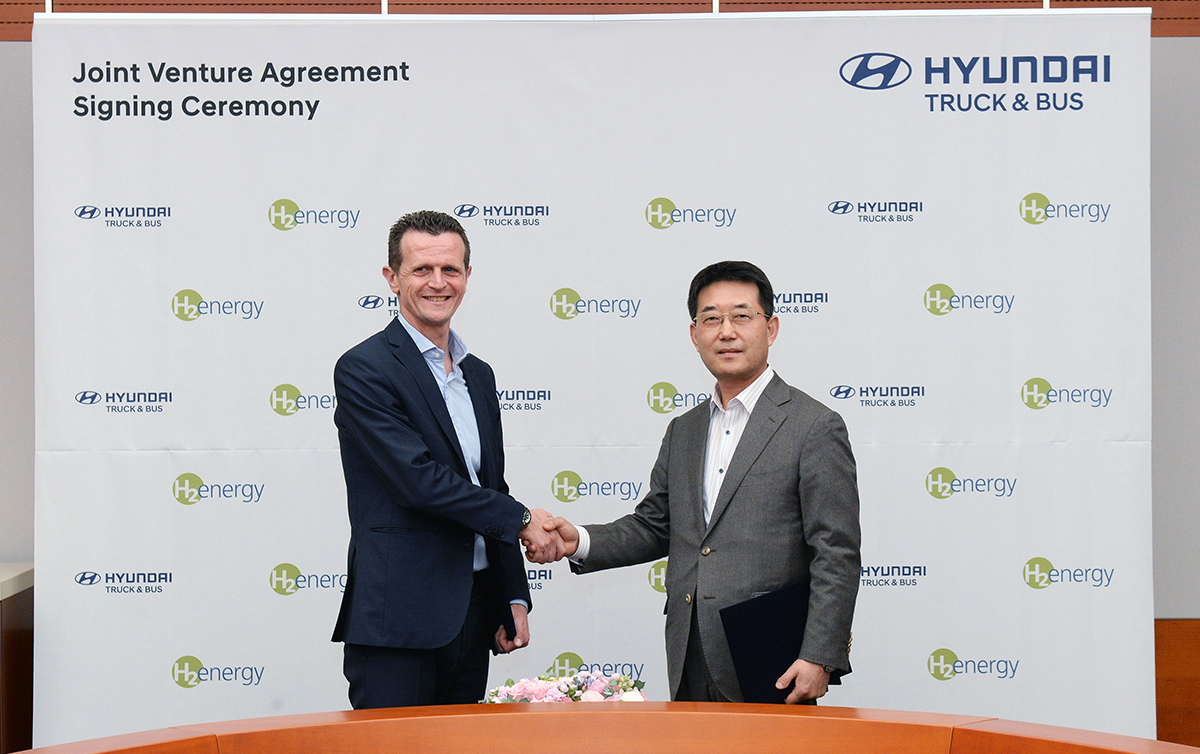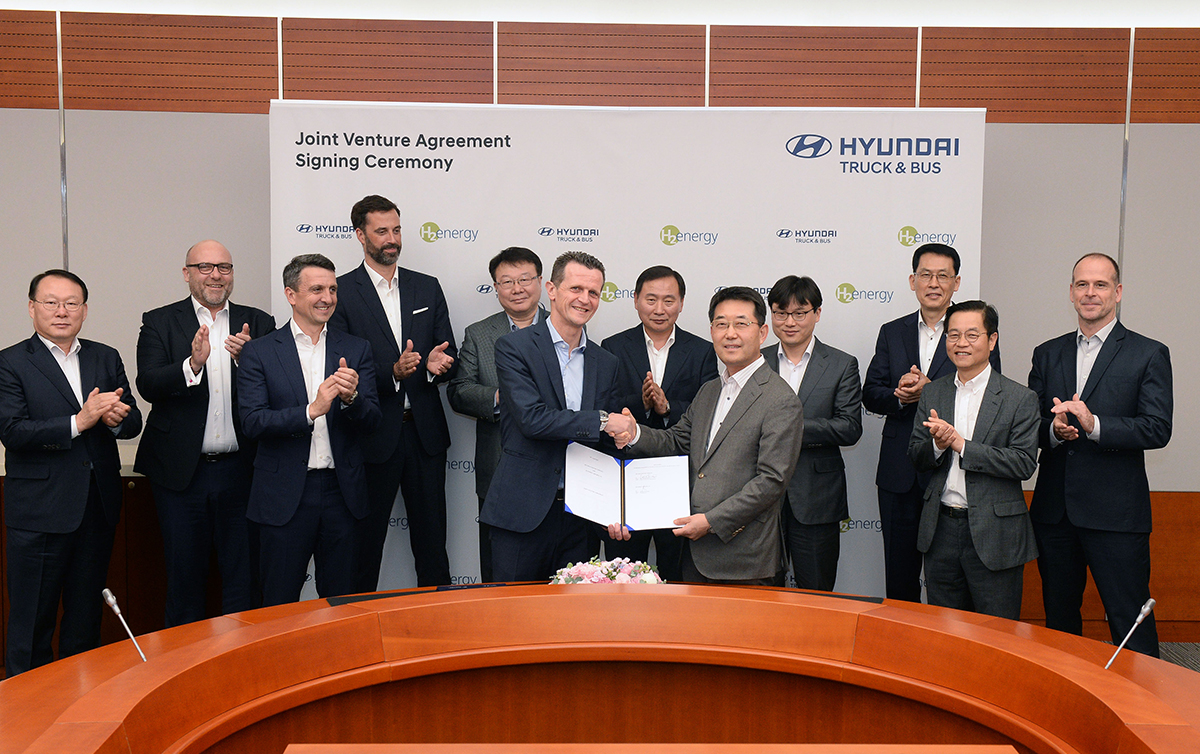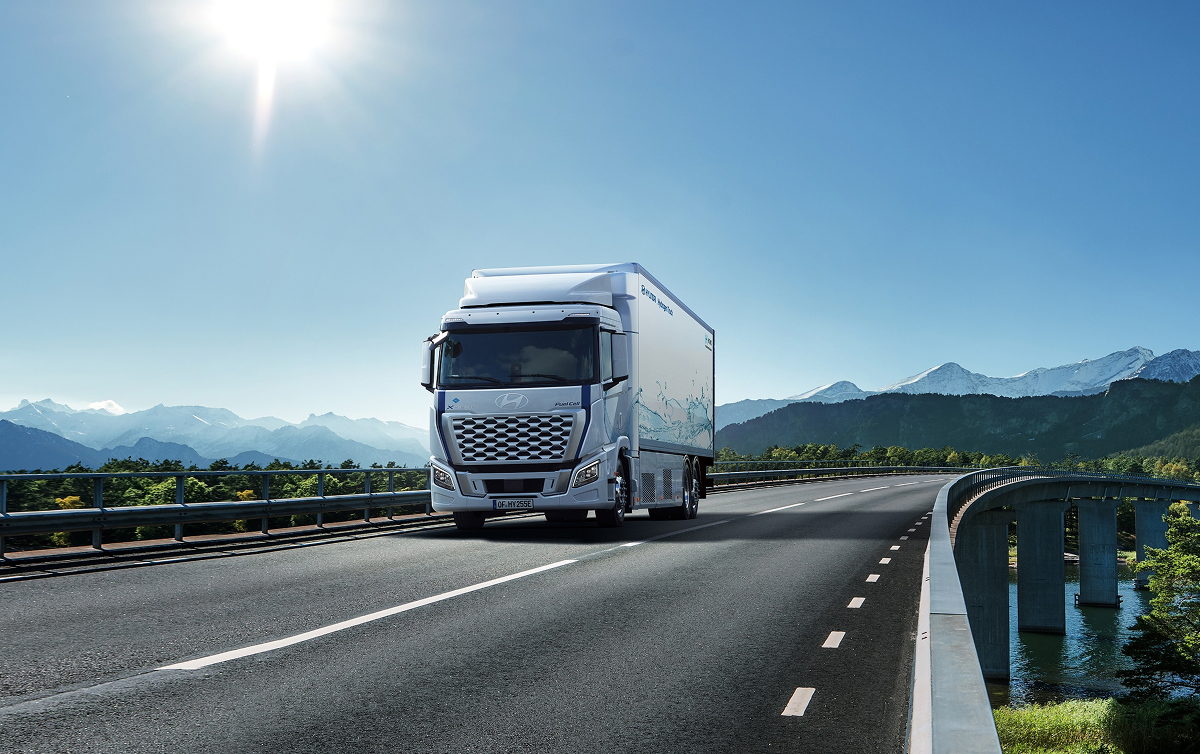Hyundai Motor and H2 Energy Sign Joint Venture Contract to Spearhead Hydrogen Mobility in Europe


- Hyundai and H2 Energy to establish ‘Hyundai Hydrogen Mobility’ to tap into Europe’s hydrogen mobility ecosystem with fuel cell trucks
- Hyundai to deliver 1,600 fuel cell heavy-duty trucks to the JV through 2025, to be leased to member companies of H2 Mobility Switzerland Association and other enterprises
- JV to expand business to neighboring European countries; offer prospects for future partnerships in U.S.
SEOUL, April 15, 2019 - Hyundai Motor Company and H2 Energy AG announced today that they signed a contract for a joint venture, Hyundai Hydrogen Mobility, aimed at taking a lead across Europe’s burgeoning hydrogen mobility ecosystem.
To begin the joint venture’s operations, Hyundai Motor will deliver 1,600 fuel cell electric heavy-duty trucks to Hyundai Hydrogen Mobility from 2019 through 2025. The venture will then lease a large portion of these fuel-cell powered trucks to the H2 Mobility Switzerland Association, which comprises major refuelling station operators, transport and logistics companies, as well as to various other industry players that promote hydrogen mobility in Switzerland.
The joint entity will further expand its market presence to other European countries beyond Switzerland.
Hyundai Hydrogen Mobility also plans to penetrate the hydrogen sales market through a subsidiary firm that produces and supplies hydrogen in Switzerland, with prospects for entering other European countries.
With the establishment of Hyundai Hydrogen Mobility, Hyundai expects to gain a foothold in Switzerland, where the demand for fuel cell trucks is expected to grow from a stiff nationwide road tax on diesel trucks, which incentivizes fleet operators of diesel trucks to switch to zero emission vehicles.
In the longer term, Hyundai plans to establish an advanced, sustainable position in Europe’s fuel cell electric commercial vehicle market, as it increasingly embraces green mobility amid stringent regulations targeting carbon emissions.
“With today’s agreement, Hyundai Motor will strengthen its business operations across the hydrogen ecosystems in Switzerland and beyond. The venture will enable us to take the first step toward successfully entering the larger European market with our fuel cell electric trucks,” said In Cheol Lee, Executive Vice President and Head of Commercial Vehicle Division at Hyundai Motor. “Harnessing the prospective success of the world’s first commercialization scheme of fuel cell trucks, Hyundai Motor will continue to maintain its technological prowess in hydrogen technology as an innovative and environmentally committed global automaker.”
H2 Energy has industrywide capabilities throughout Switzerland's hydrogen ecosystem, encompassing hydrogen production and supply, refueling stations, fuel cell vehicle procurement and other fields. The company also offers technical and consulting solutions, drawing on its engineering expertise, extensive infrastructure, solid market presence and close industrywide connections.
“Once again, Hyundai lives up to its role as a world leader in hydrogen technology. This time, Hyundai has ushered in an unstoppable momentum towards eco-friendly mobility for heavy-duty trucks in Europe and beyond,” said H2 Energy Chairman Rolf Huber. “We are very proud to play an active part in this pioneering project in the framework of a joint venture. In addition to supporting the fuel cell truck business, H2 Energy will create a related ecosystem that can flexibly adapt to operate these vehicles.”
After scaling up to meet the demand in Europe, Hyundai will launch its fuel-cell commercial vehicle businesses in other regions around the world, including the U.S. and domestic market in Korea.
Hyundai Motor is a world leader in the development of hydrogen fuel cell technology, becoming the world’s first automaker to commercialize fuel-cell electric vehicles with the introduction of ix35 Fuel Cell (also known as Tucson Fuel Cell in some markets) in 2013. NEXO - Hyundai’s second-generation FCEV with a 609-kilometer range on a single charge (under Korean certification standards) - emits only clean water vapor and purifies the air while driving.
The fuel-cell electric powertrain technology has advantages over the battery electric powertrain technology in large commercial vehicles, such as trucks and buses. Fuel cell technology saves loading space and reduces vehicle weight, progressively becoming a more cost-efficient power source as the vehicle size increases. As a result, the technology offers a wide array of opportunities in the commercial vehicle sector.
Hyundai Motor's fuel cell powertrain offers an exclusive propulsion solution for everyday vehicles from passenger cars to commercial vehicles. It represents the company’s ongoing commitment to sustainable transport.
Hyundai Motor Group has begun fostering the growth of fuel cell and other related industries around the world as part of its FCEV Vision 2030. The vision aims at creating a worldwide hydrogen society that leverages hydrogen technologies beyond the transportation sector.







